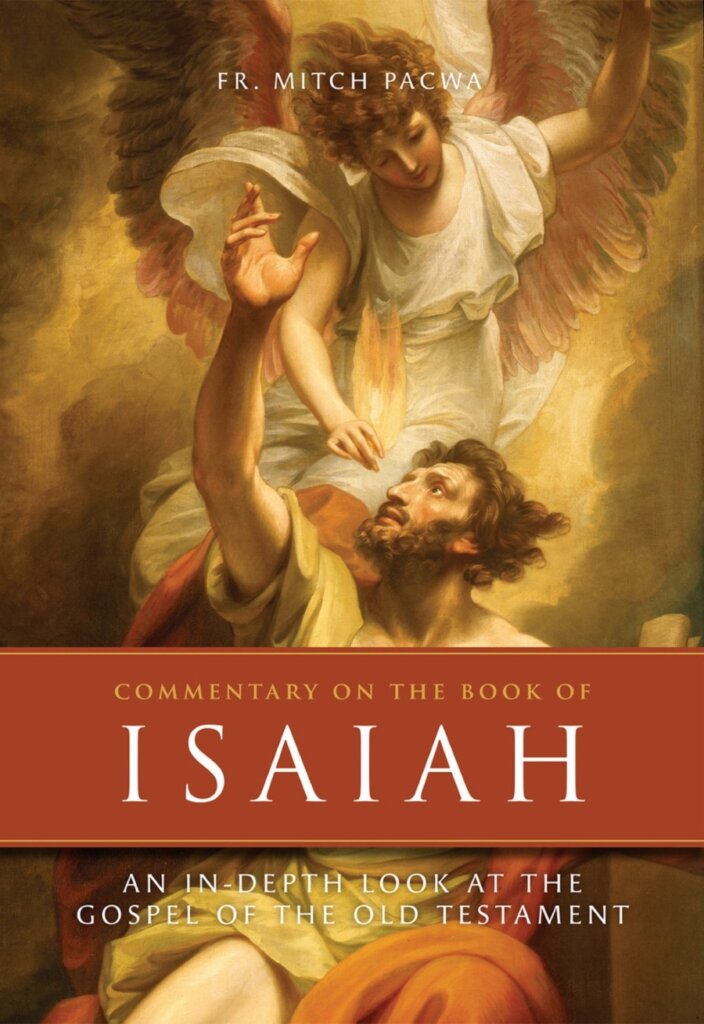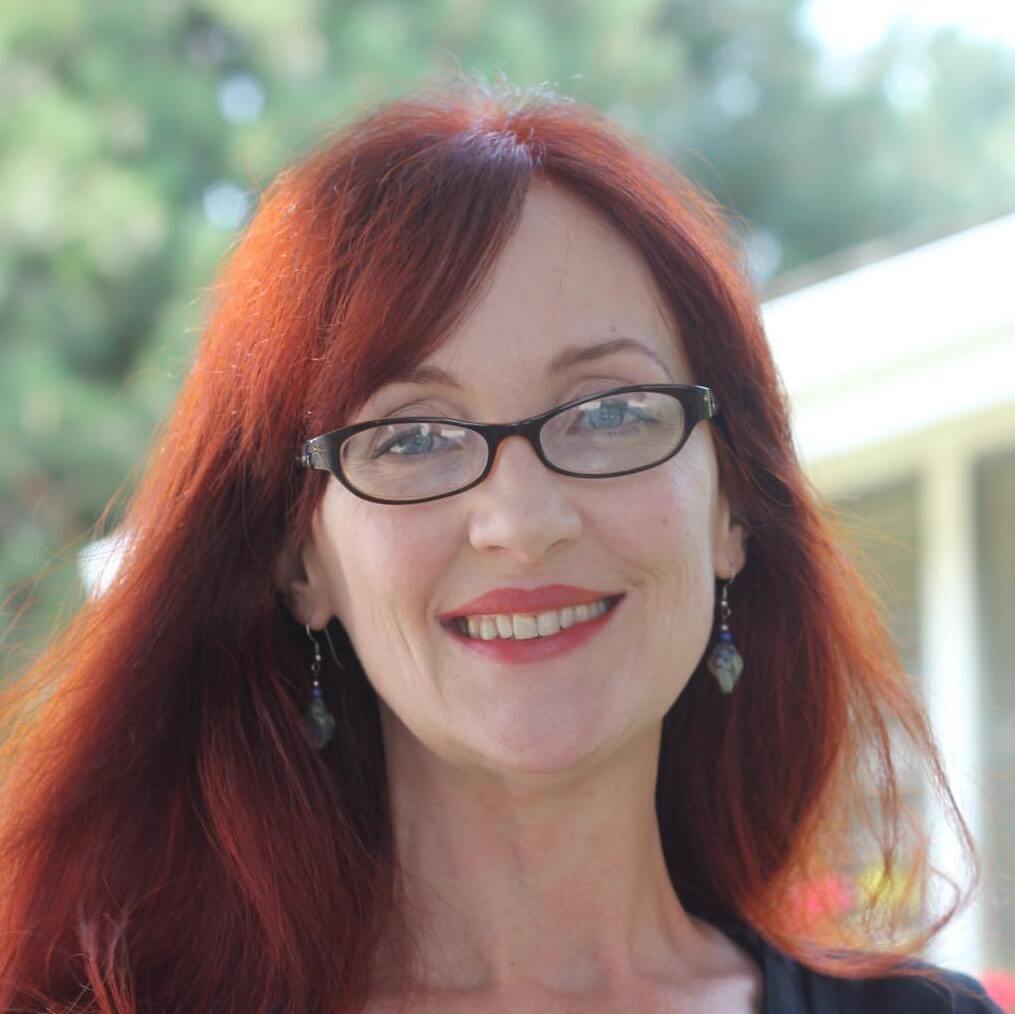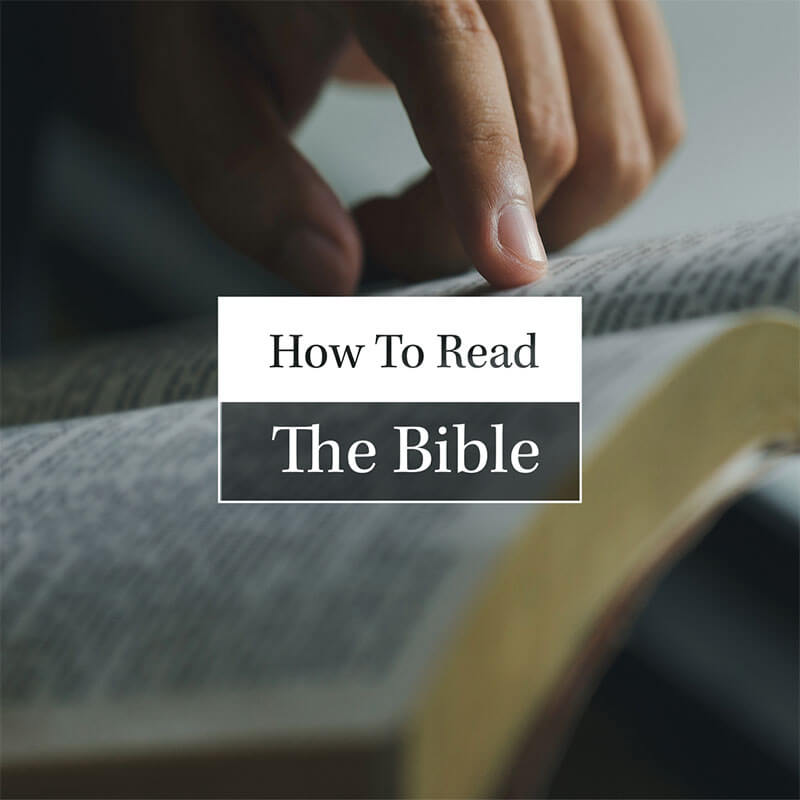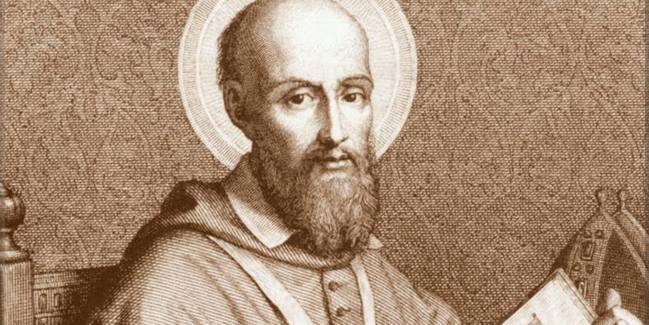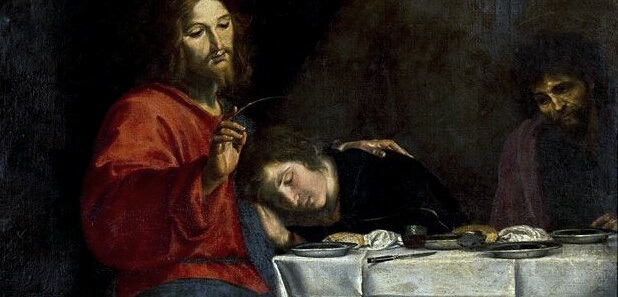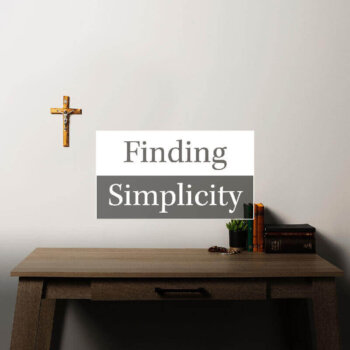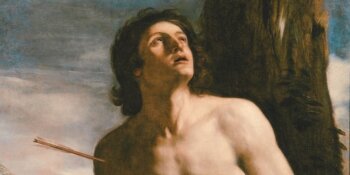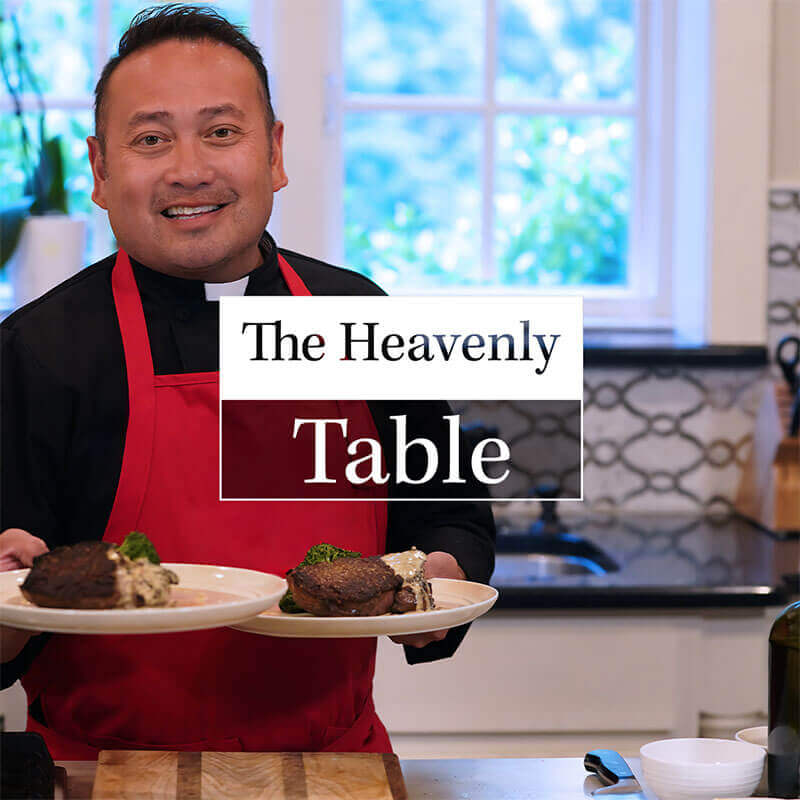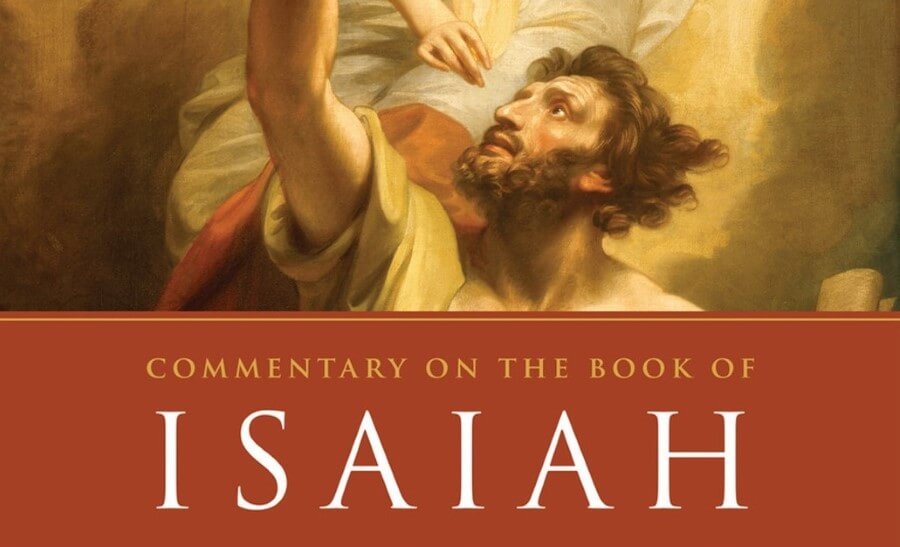
Like modern-day Christians, the Israelites also worried about the end of the world. We know this because of the Book of Isaiah. Jesuit Scripture Scholar Fr. Mitch Pacwa, S.J. has long taken a particular interest in this book of the Old Testament, an interest which resulted in his 20th published book: Commentary on the Book of Isaiah: An In-Depth Look at the Gospel of the Old Testament.
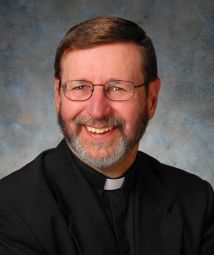
In a phone conversation, Fr. Pacwa—best-known for evangelism on radio and TV, including EWTN Live—spoke with Good Catholic about the apocalypse and why he’s fascinated with Isaiah. He also shares how Isaiah relates to the modern world, why Catholics should take a particular interest in Isaiah’s writing, and the best way to read Scripture.
Q. How did you conduct the research for Commentary on the Book of Isaiah: An In-Depth Look at the Gospel of the Old Testament?
A. It’s been my whole life! I did my PhD on the Old Testament and taught Old and New Testament at the university level. I also taught Hebrew for nine years at a university level. So, the book comes from a lot of teaching over the years and then just sitting down and going through the commentaries. It’s the work of several decades.
Q. Why write about the Book of Isaiah?
A. Since my dissertation—writing about the Israelite understanding of the day of judgment—I have been fascinated by Isaiah 23-27, an apocalyptic section that shows how they come to accept that there’s a final day of judgment. Nobody else had such an idea.
Q. So, your Isaiah commentary addresses the apocalypse?
A. Yes, I try to give historical reasons for why the Jews were concerned about the end of their world, too. But then there’s another element: the Book of Isaiah includes a lot of material about the future coming Messiah and those prophecies about His birth and death.
Q. Will you say more about why Isaiah’s apocalyptic nature inspired you to write about the Old Testament book?
A. One of the things that has been a significant part of the modern Christian experience is dealing with the catastrophic events of history. You look back on the last 200 years—but especially the last hundred years—the human race has gone through its most violent period in history. In the last century, we’ve had these catastrophic experiences of war, with 304 million people killed in war and genocide. The number of Christian martyrs is 70 million in history with 45 million in the last century. Those deaths are at the hands of primarily secular governments, such as the Nazis, China, the former Soviet Union.
A lot of Christians have become very concerned about apocalyptic issues—is this the end of the world? And there certainly has been a major change in society and culture, morality, and religious attitudes. So, a lot of people have various apocalyptic concerns. I am not of the mentality that I know when the end of the world is. I have no ideas, none of my business, but I’m concerned about the way people try to use or are motivated by apocalyptic concerns. Therefore, I’ve been writing about that to help modern readers look at the Old and New Testaments to understand the apocalyptic issues from a broader historical perspective.
Q. Do you think reading Isaiah can help us make sense of the modern world?
A. That’s another reason I bring out so much of the historical context. When you understand why a writer wrote something and what the writer meant, then you can also begin to discover the common humanity—and the way that God addresses the common humanity—that we share with the ancients. There are many cultural changes—many ways of understanding the meaning of words—and that’s natural, but there is also a common humanity that resonates with different periods of history. That’s exactly why ancient Israel read Isaiah, and it’s still read in the synagogue to this day. It’s also why Christians have read Isaiah for the last 2,000 years. Isaiah is one of the rare books in human history, along with the other biblical books, that have been in continuous use for 2,500 years.
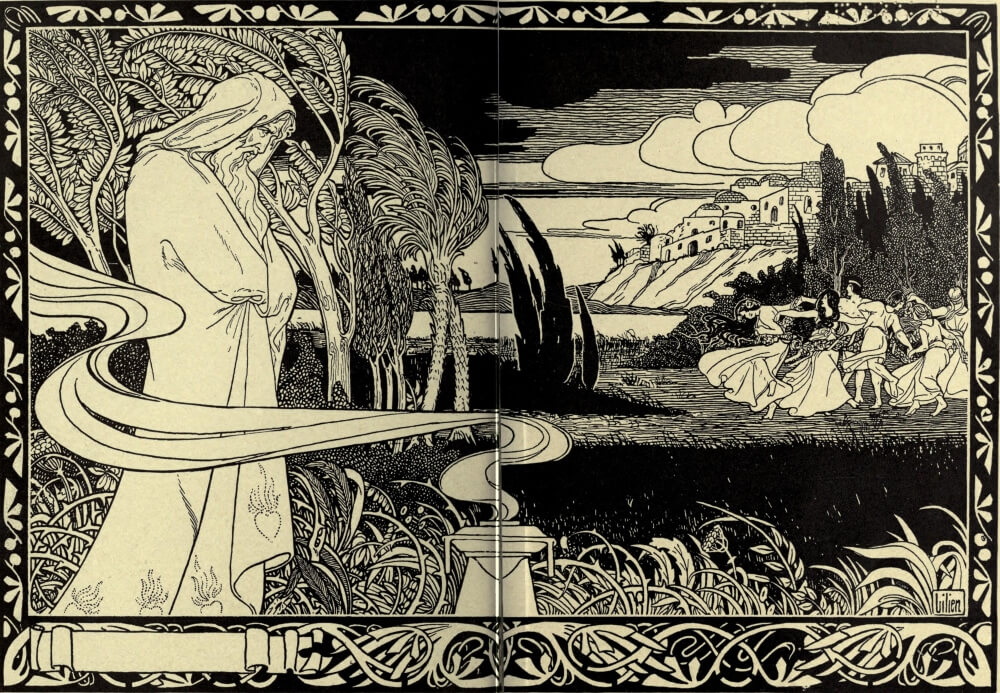
Q. Catholics get a bad rap for not knowing Scripture. We may not always know the exact citation. However, we’re very familiar with Scripture because we hear it in Mass. What are your thoughts?
A. Well, here’s the way that I would put it. A lot of Catholics know the Bible the way I know French. I can read it, and I can watch a movie and understand it, but I can’t speak French. I was never in a context where I could talk to French people, so I never learned to speak it. Whereas English, I speak fairly well, and the difference is that I have active knowledge of English. I can recognize it when I hear it. I can explain and teach it—and I can do that in some other languages—that’s having active knowledge. Passive knowledge is when you recognize it when you see it but don’t know how to put it into words. That’s the way I think a lot of Catholics are with Scripture. I have a lot of Protestant minister friends, and they have exactly the same problem with their people. A lot of Protestants also have mostly passive knowledge of Scripture.
Q. What is an example of active knowledge?
A. An active knowledge of Scripture involves the ability to recognize or to talk about Isaiah 53, for example, which is the section on the Suffering Servant of the Lord. To be able to discuss how that predicts Christ’s suffering as suffering for the sake of other people.
Q. How do we study the Bible without falling into the trap of misinterpreting it?
A. Is it easy to misinterpret your husband? You have to learn to listen to each other and understand. I use this example when I prepare couples for marriage. When a guy says he doesn’t want to talk about it, he doesn’t want to talk because he might beat somebody up or cry, and he doesn’t want to do either. When a woman says, “I don’t want to talk about it,” it means you should listen. “I have something to say, and I’m not ready to listen to your side.”
You learn to live with somebody and listen to them, you begin to understand what they mean. “Oh yeah, yeah. I better leave him alone for a few minutes, and then he’ll calm down.” Or a guy has to learn: “I don’t have to come up with an answer to fix the problem. I just need to listen when she says, ‘I don’t want to talk about it.’” You learn by living with each other—the same thing with the Scripture. You learn to understand their language, how they spoke, some of the idioms that they had, and some of the customs.
Q. The Israelites seem to suffer from the same sins we face today, don’t you think?
A. Isaiah speaks to human experience and addresses issues and concerns we have today. One is how people will be called to account for their actions. The Israelites, especially in the first five chapters of Isaiah, were not taking responsibility for their evil behavior, for their injustice to the vulnerable, their disobedience, and how their political leaders were arbitrary. For instance, God said, “You’ll be held accountable before the Lord, and unless you change and take responsibility and act responsibly, you’ll die [paraphrasing Isaiah].” Not accepting responsibility certainly fits our own culture, which rejects it regularly.
Q. Doesn’t Isaiah also address the occult?
A. In Isaiah 2, they [the Israelites] turn to the occult, and we see how it leads them to hide from God. Something that certainly plagues contemporary societies. People are still seeking the New Age movement and various kinds of occult practices. In Isaiah 44 and 45, the Lord says, “I’m the Lord. There is no other.”
Q. In the Mass readings, when do we hear the most from Isaiah?
A. The primary liturgical season for Isaiah is Advent. He is read a lot during Advent—the Liturgy of the Hours in the Matins, the Office of Readings, and that’s all from Isaiah—not only in the Roman Rite but in the other rites, too. During Lent, we also are reading from Isaiah frequently in Scripture. By including Isaiah so much in the liturgy and the liturgical cycle of the seasons of Lent and Advent, the Church invites us to reflect and understand where we came from—we didn’t just start with the Apostles. When we say in the Nicene Creed that the Holy Spirit spoke through the prophets, that means we accept their authority as the word of God. And we need that word of God not to be a famine but something that nourishes us. Moses said that man lives not by bread alone but by every word that comes from the mouth of God. We need those words, and Isaiah has such a rich variety. He wrote well; [of] all of the Hebrew writers, he’s one of the best by far.
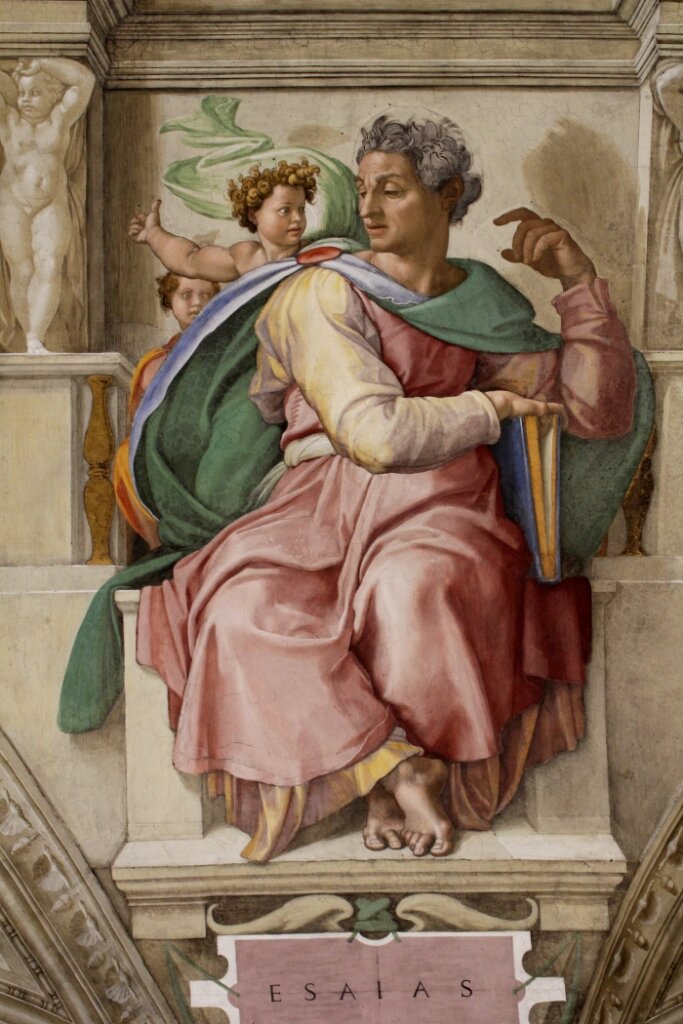
(Photo credit: Jörg Bittner Unna/CC BY 3.0)
Q. The Old Testament seems much more difficult to read than the New Testament. Why is that?
A. Because it’s situated in an oriental society. It is part of the Middle East, and the language is Semitic, which uses Semitic idioms. It takes a little bit extra work to understand the Old Testament, but as I have learned in my many years of studying it, it’s brilliant. That’s why it’s still read in a way that none of the other literature—whether Roman, Semitic Babylonian, Assyrian, Sumerian, or Egyptian literature—is read. The Old Testament has shaped our world.
Q. What’s the best way for us to read the Bible?
A. Archbishop Sheen used to recommend making a Holy Hour before the Blessed Sacrament. He would speak to priests and tell them to bring the Bible and a commentary on a particular book. One of the things that can happen when you’re reading a passage is that a phrase or even a word seems to jump out at you—that is the Holy Spirit’s yellow highlighter. That’s the passage or the phrase the Holy Spirit is directing you to contemplate today. I think that’s a fairly helpful way for people to pray through Scripture.
Q. How many lines should a person look at when studying the Bible?
A. Treat the Bible like a box of Belgian chocolates. You don’t gobble them all down. You won’t taste anything. Take each one of those small chocolates and savor it.
Q. How will studying Isaiah help Catholics to understand their Faith better?
A. They’ll see their roots in the Old Testament and its historical background—how God spoke in the past. Then, we also see how Isaiah had prophesied about Christ. Then we begin to understand that the things Our Lord Jesus did were not just an accident but part of God’s plan and providence from all eternity.
There was no way a human could engineer that a virgin would conceive and bear a son. You can’t make that happen. But God did. It wasn’t something accidental or something St. Matthew and St. Luke had just made up. The same thing with Jesus’ crucifixion and His healing ministry—His suffering, death, and Resurrection are understood in the context of Isaiah 53. Also, the power of the Holy Spirit in Him is understood in the context of Isaiah 11. In Isaiah 11:1, when it says “a root shall spring from the stump of Jesse,” the word for shoot that comes from the stump, Jesse, that word in Hebrew is netzer. That was the basis for the name of the town Nazareth. They named themselves after that passage. You miss that if you don’t know Isaiah.
Fr. Pacwa’s Commentary on the Book of Isaiah: An In-Depth Look at the Gospel of the Old Testament is available today from the The Catholic Company.
Looking for a full guide on how to read the Bible and grow in your knowledge of Scripture? Check out Good Catholic’s How to Read the Bible video series.
